Hokkaido Athletic Association, where Haika Kitaguchi, the world’s top javelin thrower, grew up, failed to pay 7,350,000 yen in registration fees.

This August, Haika Kitaguchi (25) won the women’s javelin at the World Championships in Budapest, Hungary, becoming the first Japanese female athlete to win both the track and field events.
Kitaguchi, who was born in Asahikawa and spent her high school years in Hokkaido, has not paid the registration fee of 7,352,500 yen to the Japan Association of Athletics Federations (JAAF) for 2010, which was collected from junior high, high school, and university students in Hokkaido, even though the deadline for payment had passed. Both the Hokkaido Association of Athletics Federations and the Japan Association of Athletics Federations (JAAF) have not paid the registration fee of 7,352,500 yen for the fiscal year 2010. Both the Hokkaido Association of Athletics Federations and the Japan Association of Athletics Federations (JAAF) have acknowledged the non-payment. Where have the registration fees related to athlete eligibility gone? The DAA’s opaque accounting practices could become a scandal that will dampen the excitement of the world championships in the northern part of Japan.
Possibility of Private Diversion
On November 1, Kitaguchi, the reigning world champion, resumed training in Tokyo in preparation for next season, when he is expected to win a gold medal at the Paris Olympics in 2012. Behind the scenes of his practice session with the press, he was exposed to allegations of fraud by the Hokkaido Athletics Association, the organization where he was born and raised.
The mayor of Sapporo has announced that he does not want to extinguish the flame of the bid to host the Sapporo Olympics, and he may be exploring some possibilities, but before that, there is something we need to focus on first. We have heard that the Hokkaido Land and Infrastructure Association is not paying the registration fee collected from junior high and high school students to the Japan Association of Athletics Federations (JAAF). The amount is said to be over 7 million yen. It is unforgivable to betray the children who are working so hard.
The registration fee is not just a membership fee, but a necessary condition for participating in competitions, and Article 8 of the Athletic Federation’s Registered Member Regulations stipulates that “the registration fee must be paid, ” which also applies to junior high and high school students.
The registration fee paid by the DOC to the JAAF in FY’2010 amounted to 7,352,500 yen, but it could not be paid by the end of the fiscal year, and on August 1, 2011, the association apologized for the nonpayment and explained the situation to the JAAF executives in Sapporo. They asked for a restructuring plan that was not ad hoc and payment by the end of September, but we were forced to offer an extension of the deadline on September 26.
The JFSA told us, “We cannot wait forever. Despite strong instructions from the JAAF to “resolve the situation with speed,” the organization was unable to come up with the funds and was removed from the Liaison Council of Member Associations, a forum for exchanging opinions with the prefectural athletics federations.
The DAA states that the payment is in arrears because of a decrease in income due to theCOVID-19crisis, an increase in expenditures due to the easing of the tournament schedule in 2010, and related expenses incurred in hosting the Inter-High School Championships. However, some people concerned have raised suspicions that there is a possibility of personal misappropriation of funds.
An extraordinary meeting of the Board of Councilors was held at the end of October, but there was no clear explanation from the executive board of the DAAF, and time has been dragging on without a single sign of progress.
While registration fees vary by prefectural JAAF, high school students are charged less than 1,000 yen per person per year, while university students and the general public are charged 1,500 to 4,000 yen per person per year, providing a valuable source of revenue for the local JAAF. From this amount, the JAAF has been paying a “data bank fee” to the JAAF for managing membership information: 50 yen per person per year for junior and senior high school students and 100 yen per person per year for the general public.
However, in September 2008, the JAAF Board of Directors announced that in addition to the COVID-19 crisis, sponsors are expected to withdraw after the Tokyo Olympics in 2009, and revenues from sponsorships and broadcasting rights fees are expected to decline. The “top payment” is the “fee for the event,” which is to be paid by the public.
If the payment of the “top fee” increases, local track and field associations, including the Hokkaido Association of Athletics Federations, which are in even greater financial difficulties than the Japan Association of Athletics Federations, will suffer a major blow as their share will be reduced. Initially, a proposal for an even larger increase of 15 times was discussed, but the local track and field associations strongly opposed the proposal and reluctantly agreed to a 10-fold increase.
According to the 12th Athletics Federation’s business and financial report (April 1, 2010-March 31, 2011), sponsorship fees were down 257,176,533 yen from the previous year, broadcasting rights fees were down 4,469,950 yen, and overall business income was down 127,236,812 yen. The total revenue from the sponsorship was down by ¥257,176,533 year-on-year. Meanwhile, total registration fee income was only 222,555,000 yen, an increase of 511,500 yen over the previous year. The reality is that even with the substantial increase in registration fees, it has not contributed to the improvement in earnings that the Athletics Federation had targeted.

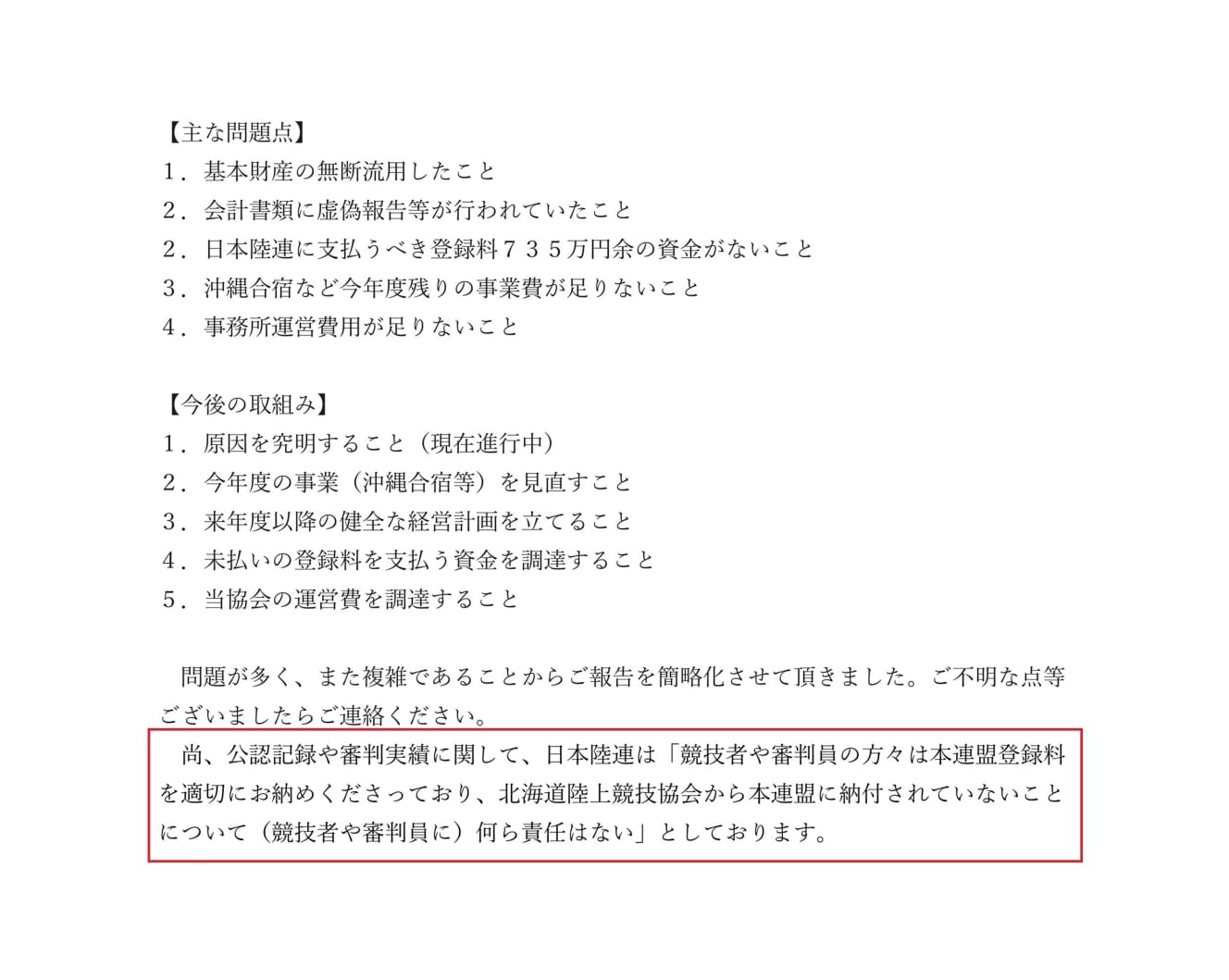
Why were the important decisions of the Executive Board meeting communicated five days before the official decision?
If the registration fee had not been paid, the athletes would have been ineligible according to Article 8 of the above-mentioned JAAF Registration and Membership Regulations. Next month, Sapporo Yamanote (boys) and Asahikawa Ryutani (girls) will participate in the National High School Ekiden in Kyoto. Both schools participated in the 2010 event while their registration fees were still unpaid, and finished 21st for the boys (2:07:08) and 24th for the girls (1:12:08), but their rankings and records have not been erased.
When we asked the JAAF about the fact that the results are still available, they replied, “The registration fee paid by the members of the JAAF has not been received by the JAAF. The answer was, “When the registration fee was paid to the JAAF, the member’s registration was completed, so the member is eligible to compete.
FRIDAY Digital exclusively obtained a document titled “Report and Apology” (see above), which was sent by the Hokkaido Association of Athletics Federations to certified referees and competitors in Hokkaido. It is dated October 26, and bears the name of Noboru Maru, president of the Hokkaido Association of Athletics Federations.
The document ends with the following statement : “Furthermore, with regard to the certified records and referee performance, the JAAF states that ‘the athletes and referees have properly paid the JAAF registration fees, and that there is no responsibility on the part of the Hokkaido Athletics Association for the lack of payment by the JAAF to the JAAF.
However, the decision by the JAAF that there was “no responsibility” was made at a meeting of its executive board of directors held on March 31 of the same month. It is highly unlikely that a single local athletics association would have known five days in advance about an important matter that was to be decided in the presence of the highest officials of the JAAF. And it would have been considered “completely jumping the gun” to notify the judges and athletes before a decision had been reached.
Furthermore, how could the Hokkaido Athletics Association notify those involved in athletics in Hokkaido of the “no problem” endorsement, which has to be discussed and approved by the highest decision-making body, the Board of Directors, on the 12th of next month? Can they explain the “five blank days”? And where is the basis for the JAAF to say, “The JAAF is paying appropriately,” when the registration fee of over 7,350,000 yen has disappeared? Various new questions have arisen, and the confusion is only deepening.
The advisor of a high school track and field team in Hokkaido said, “The JAA should explain the circumstances of the nonpayment without concealment and apologize. The shock to the students must be worth hundreds of millions of yen.
Toshiki Tsuda, a sportswriter who has covered the Olympics and other international competitions, said, “Hokkaido is a ‘track and field kingdom. In addition to Kitaguchi, the city has produced such strong athletes as Chisato Fukushima (from Makubetsu), the Japanese record holder in the women’s 100m and 200m, and Asuka Terada (from Sapporo), a former Japanese record holder in the hurdles. This incident will trample on the aspirations of junior high and high school students who are trying to follow in their footsteps and make their mark on the world,” he said, pointing out the depth of the crime.
For the sake of the young people who are the future of the track and field world, the Hokkaido Association of Athletics Federations must pay the registration fees as soon as possible and be accountable for its opaque accounting practices.
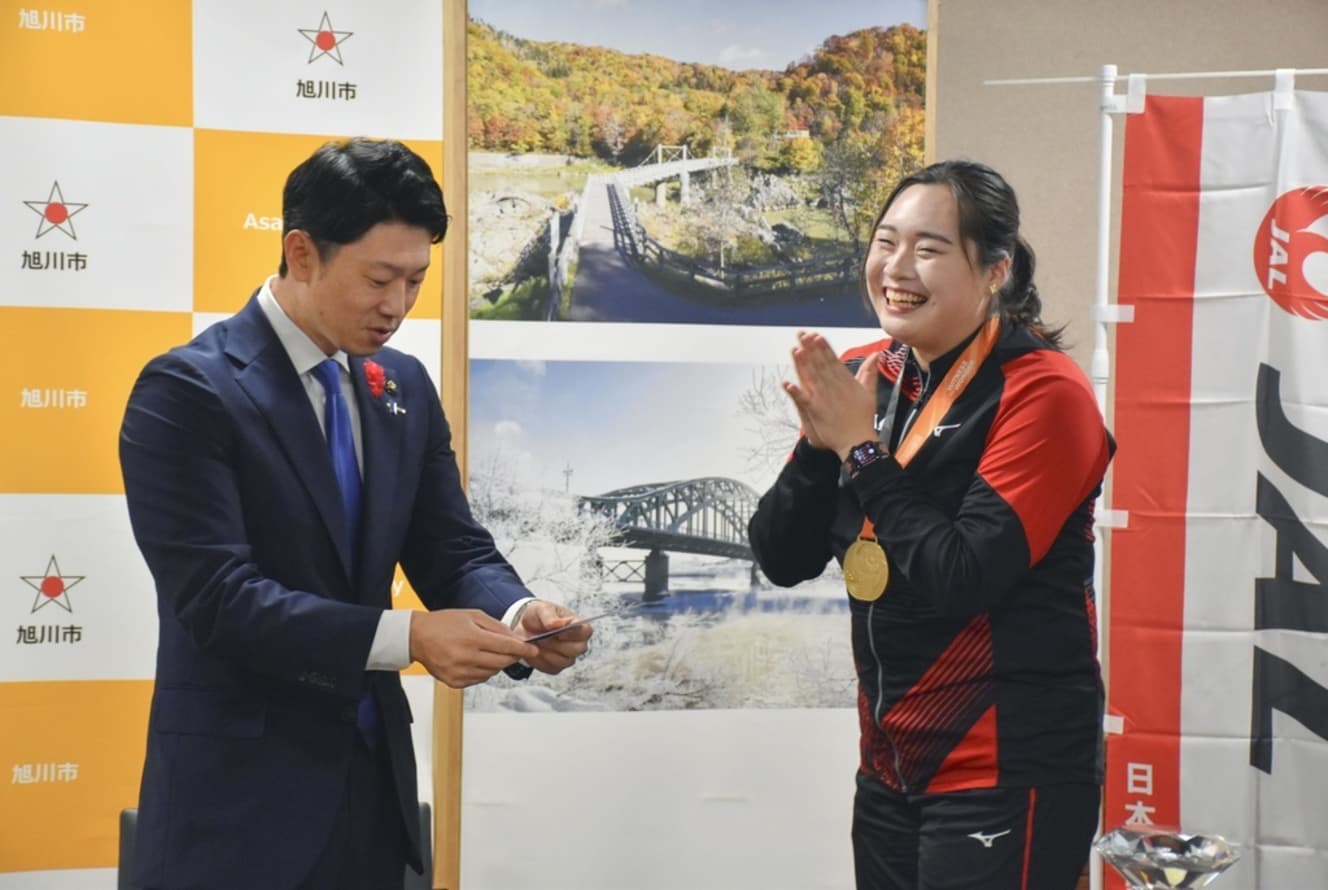
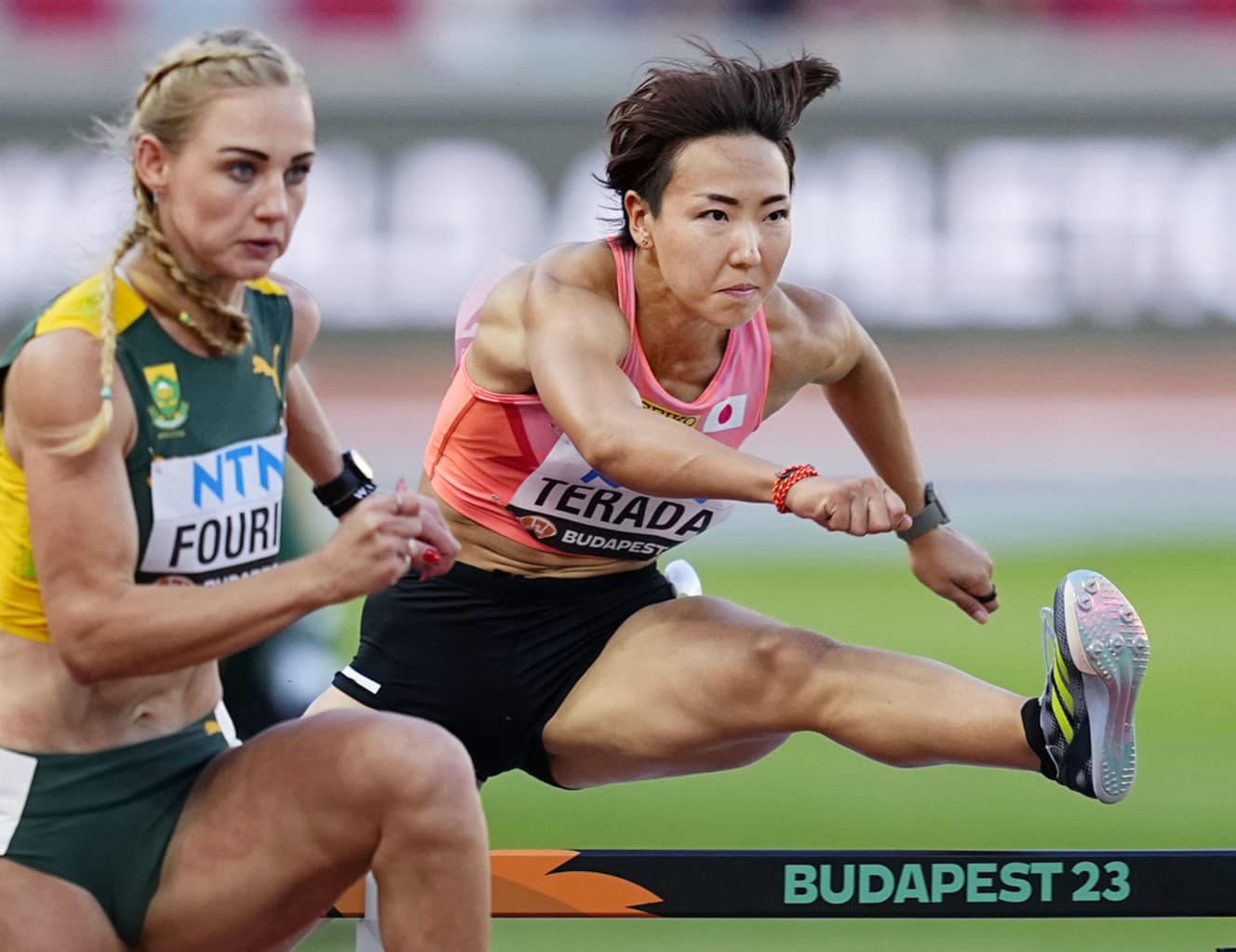
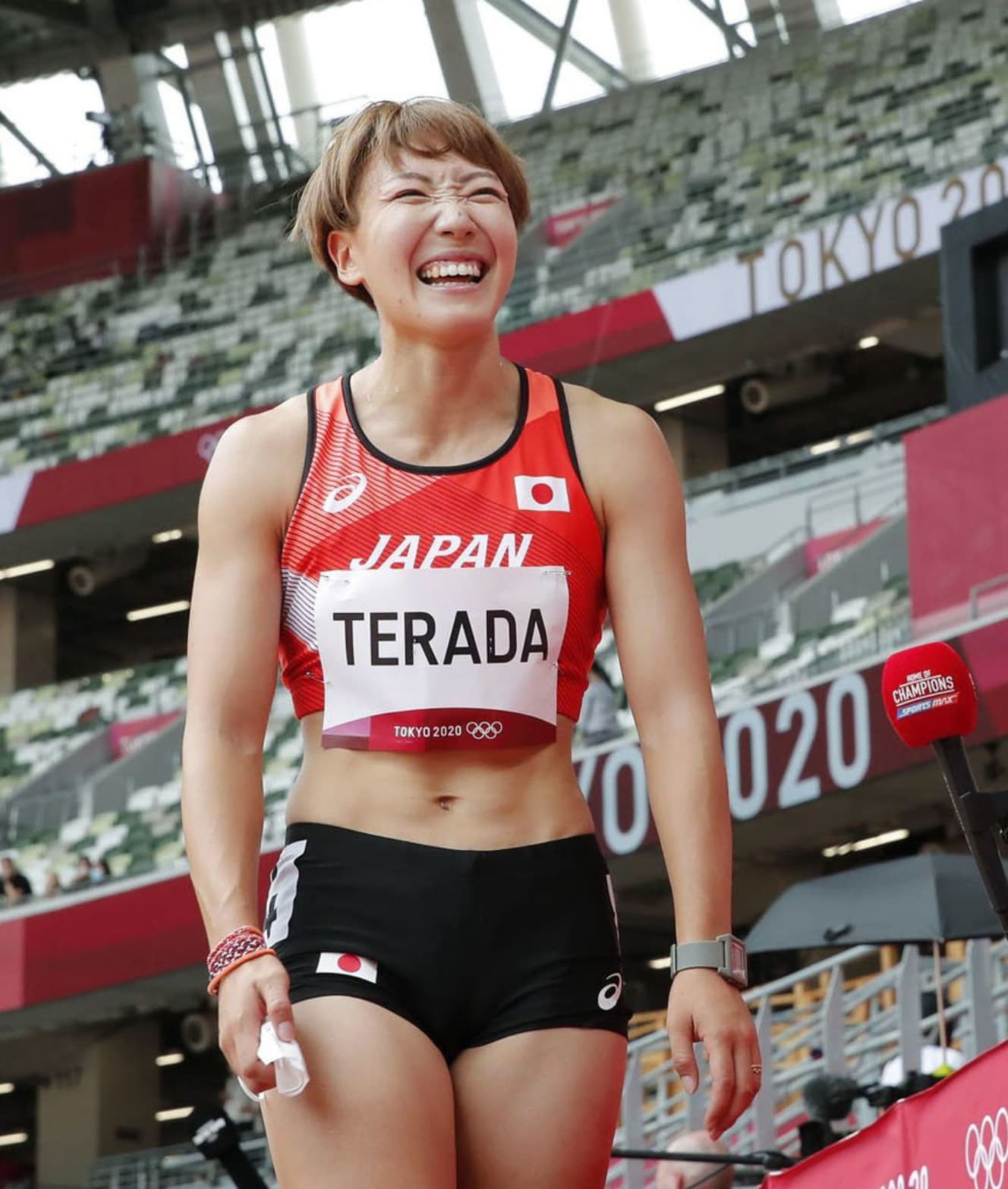
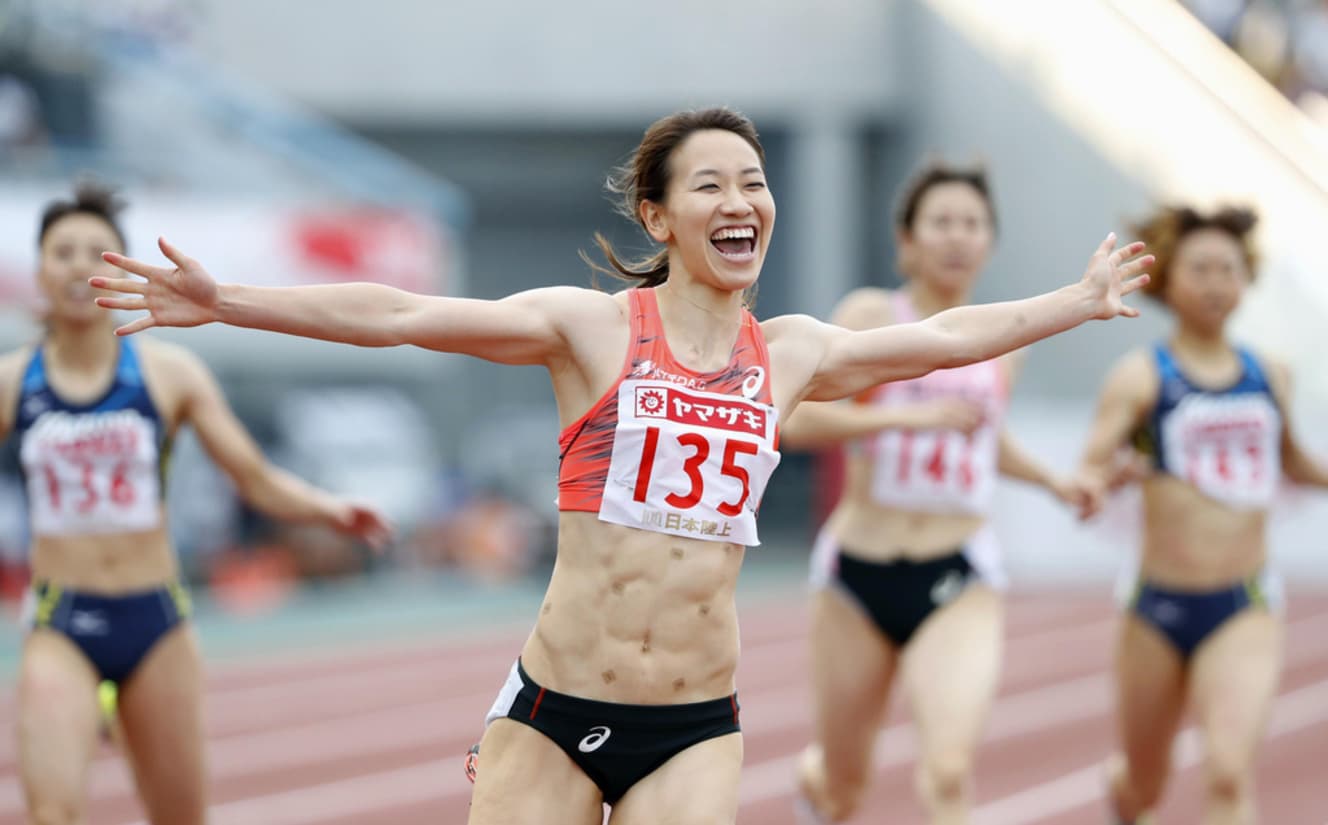
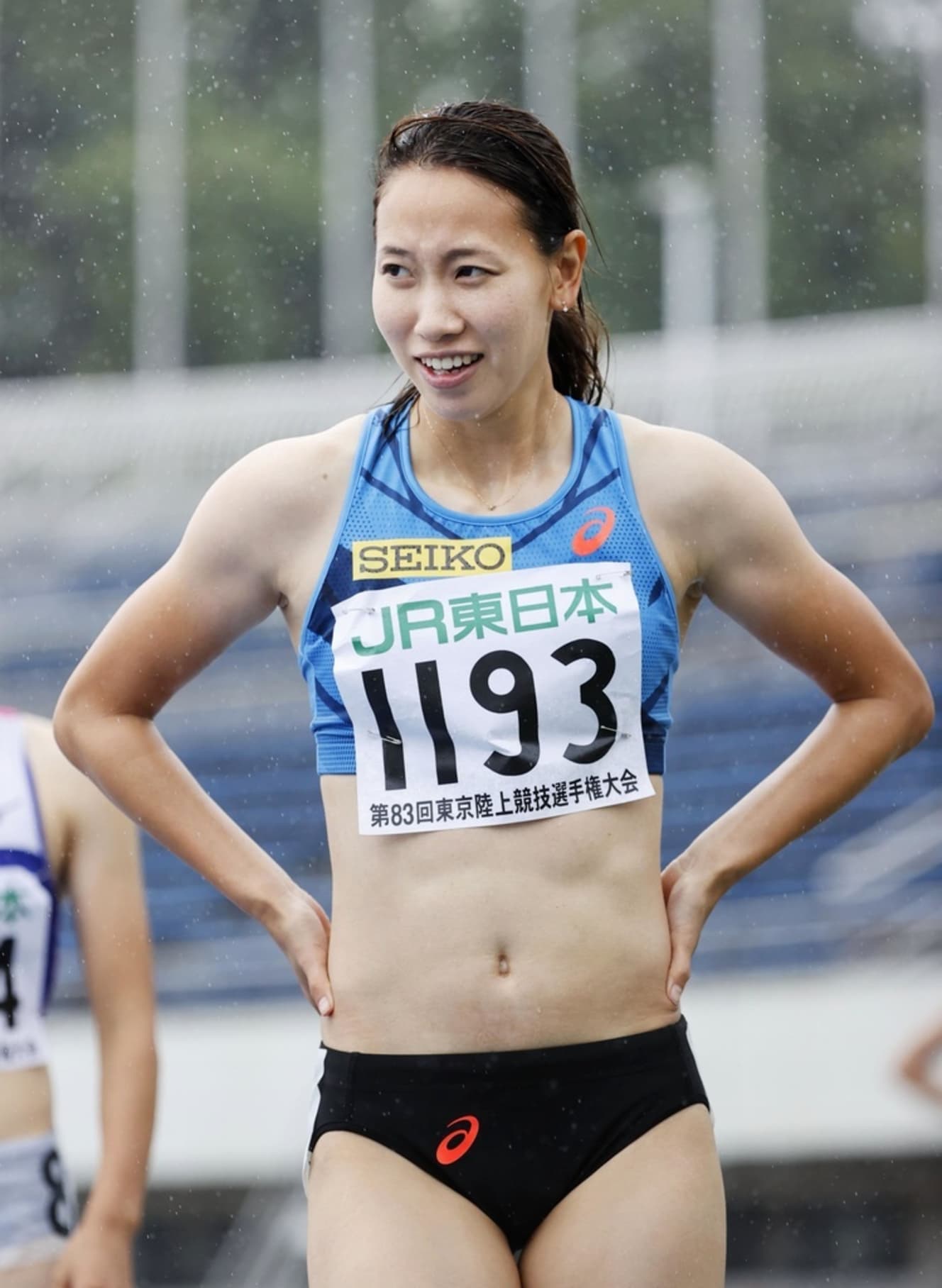
PHOTO: Kyodo News